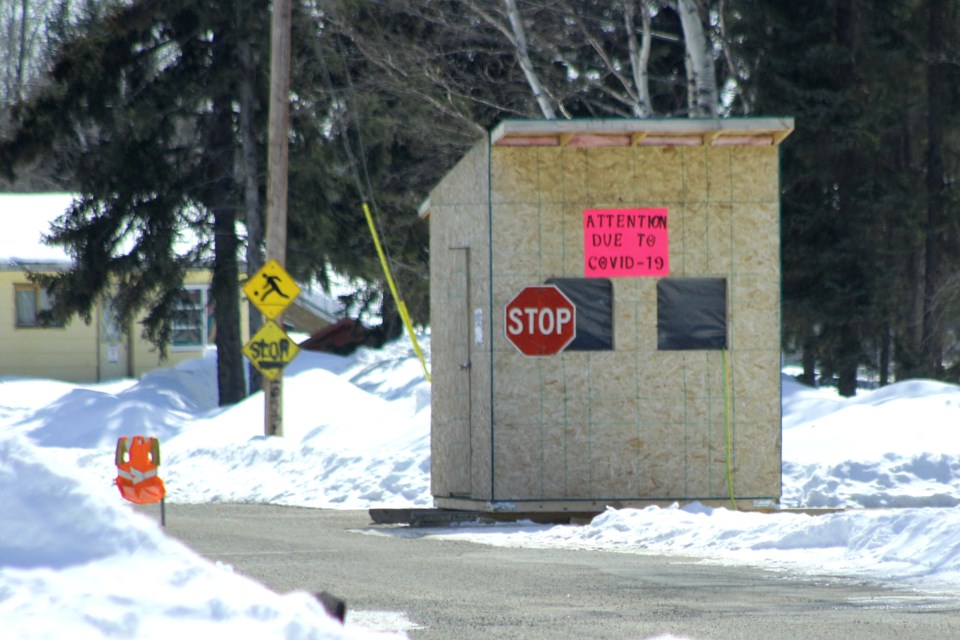As COVID-19 spreads throughout the country, including a number of cases in remote areas, several Indigenous communities are taking their own steps to stop the virus from entering.
Road restrictions are in place at several Peter Ballantyne Cree Nation (PBCN) communities. The Amiskosakihikan reserve in Denare Beach is one community that has instituted checkpoints for people coming in and out of the area.
According to a statement from the Northern Village of Denare Beach, the checkpoint is meant to “monitor anyone for symptoms before entering and to provide information to area residents.” Village administration supported the construction of a checkpoint.
Other smaller communities in northern Saskatchewan have taken similar measures. Pelican Narrows began a full lockdown March 21, joining a growing number of Indigenous communities taking protective measures to fend off the spread of COVID-19.
Highway 135 leading into Pelican Narrows has been blocked off at the second bridge shortly before entering the community for select time periods.
The road, which services both Pelican Narrows and Sandy Bay, is completely blocked off from 10 p.m.-7 a.m. and partially blocked off from 7 a.m.-10 p.m. The restrictions mean only members of each community, essential services and medical personnel are allowed in.
A stay-at-home order was also issued for Pelican Narrows residents between 9 p.m.-8 a.m.
Other communities within the area, including Deschambault Lake and Sandy Bay, have restrictions in place despite no positive tests.
A lockdown order in Deschambault Lake has starts at 9 a.m. each day. Similar to the Pelican Narrows/Sandy Bay closure, only essential services will be permitted into the community.
A roadblock has been erected on Highway 911 heading into the community. Access to both Deschambault Lake and nearby lakes will be monitored, according to a notice posted online by PBCN.
“We understand that we are in unprecedented times, government and health updates are changing daily and there is a sense of stress and concern that is weighing on everyone - but as a community, we have an opportunity to come together and take the necessary action,” reads the notice for Deschambault Lake.
Other northern Indigenous communities, including Cross Lake in Manitoba, have begun similar practices, organizing checkpoints to keep people away from potentially vulnerable areas.
Opaskwayak Cree Nation (OCN) also has introduced several new measures due to COVID-19, declaring a local state of emergency, closing the doors to local band offices, enforcing a community-wide curfew and issuing immediate eviction notices for any on-reserve tenants found hosting house parties or large gatherings.
The Assembly of First Nations (AFN) declared a nationwide state of emergency March 23 in response to the COVID-19 outbreak.
“The AFN is pressing for immediate increases in funding for First Nations and full involvement in all discussions with governments on planning and preparedness to ensure the unique needs of First Nations are addressed,” reads an AFN press release issued March 24.
“First Nations are the most vulnerable communities in the country and prevention efforts and preparation for critical care must be stepped up now. While the federal funding announced recently is a start, it is inadequate to meet the anticipated needs. This is about the health and safety of First Nations families and communities. We need to act now,” added AFN national chief Perry Bellegarde.




